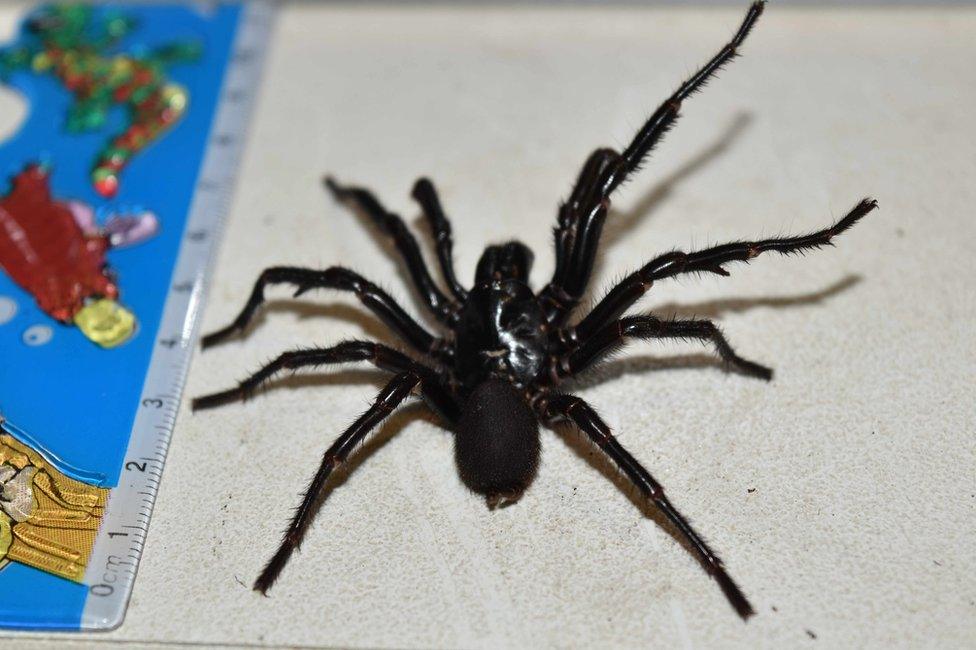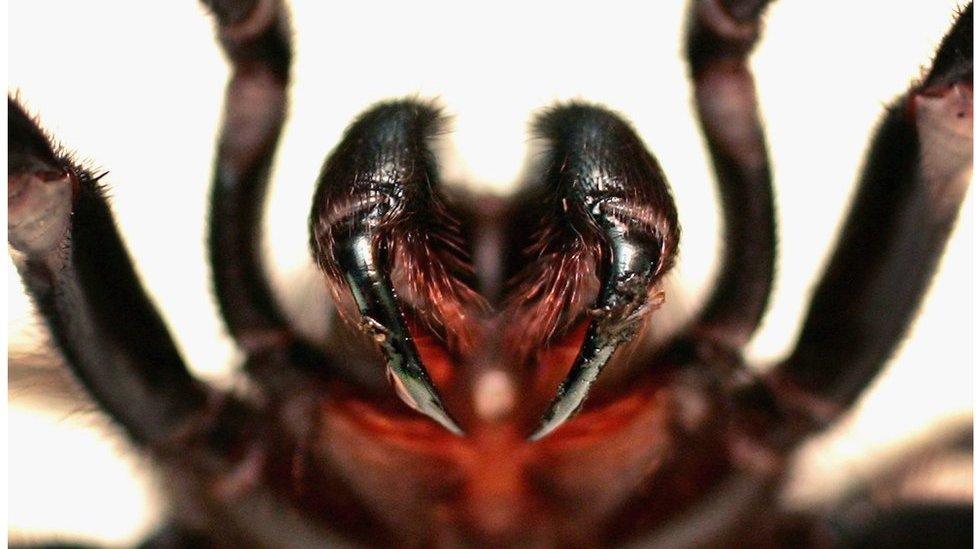Massive funnel-web's spider venom to be milked in Australia
- Published

"Big Boy" will be milked for his venom at the Australian Reptile Park
A deadly funnel-web spider with a leg span of 10cm (4in) is the largest specimen ever handed in to Australia's only venom-milking programme.
The spider, which has been named Big Boy, was caught in bushland in Newcastle, NSW, last week and handed over to the Australia Reptile Park.
The park encourages the public to catch and send in spiders so it can use them to produce anti-venom.
Programme supervisor Billy Collett said he had not heard of a bigger specimen.
"There might be one at a museum, but this is the biggest one we've had in our venom programme," Mr Collett said.
A "good Samaritan" had handed the spider in at a local hospital, which acts as a collection point for the Australian Reptile Park's venom milking programme, he added.

How anti-venom is created
How to catch - and milk - a deadly funnel-web spider
Spiders are milked using a pipette which sucks up their venom. This is done once every week as the spiders can get exhausted from too many milkings.
The park needs between 200 and 300 spiders to milk every year, and needs 3,000 milkings to produce enough venom for the antidote.
The venom is sent to laboratory Bio CSL where it is injected in incremental doses into rabbits.
The bunnies gradually build up antibodies in their blood, which the laboratory extracts to make a serum.

Big Boy is a male Sydney funnel-web spider, which is the deadliest spider in Australia and one of the most venomous in the world.
The average leg span of a funnel-web is between 6cm and 7cm.
Mr Collett said earlier reports that Big Boy's size was 7.5cm were based on an incorrect measurement taken when the spider's legs were not fully extended.
Big Boy will now become one of more than 500 funnel-webs that are milked for venom at the Australian Reptile Park.
"We get them into a defence position and with a glass pipette we vacuum the venom right off their fangs," Mr Collett said.

The small and deadly funnel-web spider
Named after their irregularly-shaped webs, funnel-web spiders live in moist habitats - such as under logs or shrubbery - or rotting parts of trees.
They sometimes fall into swimming pools, where they can live up to 30 hours under water.
Their venom can lead to heart collapse, affect the nervous system and intestines, and cause difficulty in breathing.
There have been 13 recorded deaths from funnel-web spider bites in Australia - nobody has died since the anti-venom programme began.

- Published14 October 2015
